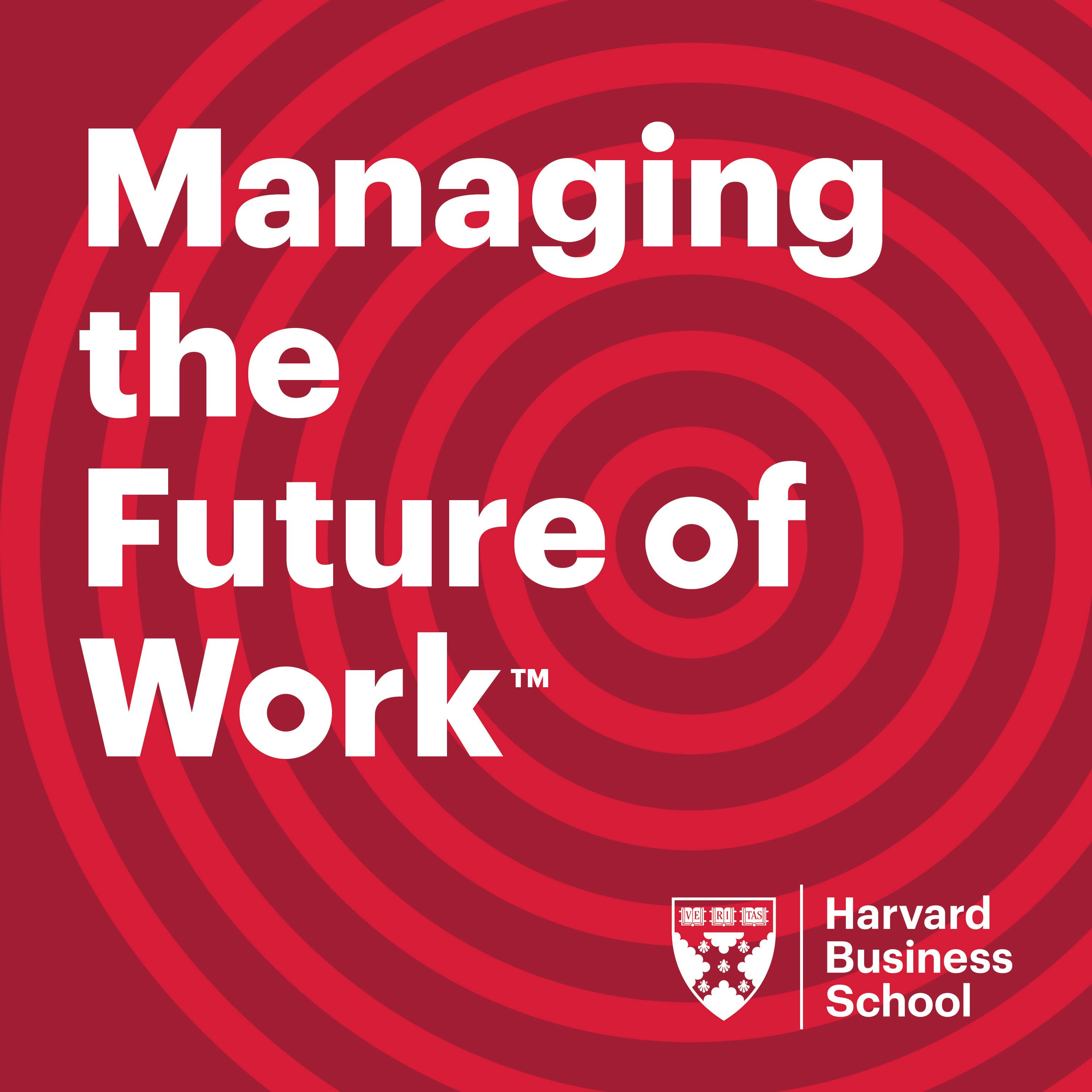

HBS Managing the Future of Work
Harvard Business School
Artificial intelligence. Robotics. The Gig Economy. Globalization. The world is changing at a dizzying pace in ways that will have a profound effect on the economy, jobs and the flow of talent. How will firms cope with the changes ahead and what steps do they need to take today? Each episode features faculty from the world’s leading business school interviewing CEOs, technologists and experts on the bleeding edge discussing how to survive and thrive by managing the future of work.
Episodes
Mentioned books

May 1, 2020 • 27min
Handicapping the global competition for talent
Post-Covid recovery will hinge on how well countries leverage talent. This lends new relevance to international business school INSEAD’s 2020 global ranking of that capacity. Released in January, the school’s seventh annual Global Talent Competitiveness Index (GTCI) weighs countries’—and major cities’—ability to attract, foster, and maintain talent. The 2020 GTCI focus on AI is also apt, given predictions that the coronavirus will speed trends like automation. Co-author Felipe Monteiro interpreted.

Apr 29, 2020 • 22min
Covid-19 Dispatch: Nick Dalton
Unilever was several years into a company-wide plan to revamp its workforce when the coronavirus flared into a pandemic. The multinational entered the crisis braced for change. Executive vice president Nick Dalton discusses how that flexibility has helped Unilever maintain business continuity, provide for worker safety, and coordinate remote work. With the disruption of global supply chains and ordinary life largely locked down, all eyes are on the consumer goods business.

Apr 27, 2020 • 22min
Covid-19 Dispatch: Kent Thiry
Kent Thiry is a veteran healthcare executive with decades of experience observing public health policy and administration at both federal and state levels. He shares his assessment of why the US was slow out of the blocks in responding to Covid-19. Looking at the virus’ likely effects on the healthcare market, he anticipates that the crisis will accelerate adoption of tele-medicine. More broadly, he foresees a shift of more manufacturing to domestic locations, a speed-up of automation, and prospects for a greener, lower-carbon economy in the recovery from the current slowdown.

Apr 24, 2020 • 26min
Freelancer.com: On-demand Skills and Ideas
The Covid-19 pandemic appears to be accelerating the global workforce shift toward freelance and contract work, as it makes remote work a more attractive option. For many, the traditional employment model is being replaced by digital labor platforms like Freelancer.com, which touts skills outsourcing and innovation crowdsourcing. What’s in it for enterprises and freelance workers? Vice President Sarah Tang explains.

Apr 22, 2020 • 23min
Covid-19 Dispatch: Edward Glaeser
Harvard economist Edward Glaeser is an expert on how cities function as economic engines and centers of innovation. He notes that the advantages of density in spurring creativity and productivity are mirrored by the vulnerability it creates to threats like disease. Cities and their most vulnerable residents have borne the brunt of pandemics since antiquity. As Covid-19 tests the resources and resilience of urban centers and confronts leaders with difficult choices, Glaeser explains the policy options for protecting people and stabilizing the economy.

Apr 20, 2020 • 17min
Covid-19 Dispatch: Irfhan Rawji
Canadian entrepreneur Irfhan Rawji has insight into the pandemic’s influence on a wide range of sectors, from US companies working with global tech specialists, to startups in a variety of markets, the organic food business, and healthcare. He shares his observations on the coronavirus’ impact on the nature of work; how it is shaking up the VC world; increasing demand for organic and locally produced food; and testing the Canadian and US healthcare systems.

Apr 17, 2020 • 25min
Covid-19 Dispatch: Derek Thompson
In Episode 3 of the Covid-19 Dispatch series, we talk to The Atlantic’s Derek Thompson, who recently wrote about contact tracing. In the fight against Covid-19, this critical public health tool has been used unevenly. Thompson notes that South Korea and Singapore have had success with smartphone apps, but that South Korea’s reliance on GPS, along with surveillance video and credit card transactions, raised privacy concerns and may have discouraged participation. Singapore used Bluetooth proximity data, which doesn’t reveal geolocation information. The latter may provide the model for tracing efforts in the US and elsewhere.

Apr 15, 2020 • 17min
Covid-19 Dispatch: Ardine Williams
The pandemic has magnified Amazon’s role as household supply line and pushed the company to quickly adjust how it does business. The retail giant has revised scores of operating processes in response to customer demand, workplace safety requirements, and public health directives. For an enterprise with half a million employees in the US, implementing these changes has been a mammoth management challenge. Ardine Williams, the company’s vice president of workforce development discusses how the coronavirus has changed business as usual.

Apr 13, 2020 • 22min
Covid-19 Dispatch: Justin Wolfers
The Covid-19 pandemic has thrown more people out of work than at any time since the Great Depression, and did so with unprecedented speed. In this debut episode of the Managing the Future of Work podcast’s Covid-19 Dispatches, economist and New York Times columnist Justin Wolfers discusses alternatives to the official unemployment figures; best and worst case scenarios; economic insecurity; and the need for federal aid to state and local governments.

Mar 25, 2020 • 29min
Data-centric business: Inside the artificial intelligence factory
Artificial intelligence seems to have repealed the laws of business physics, allowing “digital native” companies to grow at the stroke of a key and cross traditional market boundaries unimpeded. In their new book, Competing in the Age of AI: Strategy and Leadership When Algorithms and Networks Run the World, HBS professors Marco Iansiti and Karim Lakhani show the inner workings of the “AI factory.” Traditional businesses can’t bolt on AI and analytics and expect to compete. Marco explains how firms can adapt and discusses the implications for workers and public policy.


